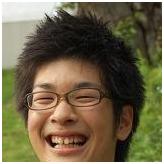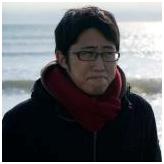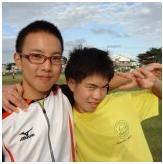NASA Administrator Charles Bolden answered questions from the Japanese public when he visited Tokyo in December 2012. Here are some of his responses on video:
Movie 1:
Question from Mr. Yuto Hirata, student at Nihon University:
“Do you think that Japan will eventually succeed in sending a man up to space? I myself believe that since Japan is good at certain technologies, Japan can pursue its own experiments and development, so that we will better support space development programs. “
NASA Administrator Bolden illustrates the roles and accomplishments of Japanese astronauts that have participated in space programs.
Movie 2:
Question from Mr. Kenta Nagahama, student at Keio University SFC:

“There are start-up companies in the U.S. getting into the aerospace industry. Do you think the private sector should take the lead in the aerospace industry in the future? I believe that organizations like NASA and JAXA should be taking the lead, because it requires huge budgets.”
In this video, NASA Administrator Bolden explains how NASA uses commercial enterprises and new technology to send cargo and other supplies into lower orbit. He then explains why it is important to continue with this technology and why having commercial options benefits NASA and the space program.
Movie 3:
Question from Mr. Motohiro Pereira Hiraoka, graduate student at University of Tokyo:

“What do you think of and what do you expect from Japan in terms of space development? What is a competitive and unique aspect that the Japanese space development program has?”
NASA Administrator Bolden outlines the uses of the HTV shuttle, which Japan designed, manufactures, and launches. He also goes on to congratulate the Japanese people on their success in designing a module attached to the International Space Station that allows for experiments that would otherwise be nearly impossible.
Movie 4:
Question from Ms. Keiko Takita, submitted by the mother of a third grade elementary school student:

“Hello, I’m a third grade elementary school student who wants to become an astronaut when I grow up, and I am currently visiting ‘Tanegashima'(where JAXA has its Space Center) to study. There are so many things I want to do, besides studying about space. I would like to draw a picture in space and play an instrument. I am planning on asking Santa Claus for an opportunity to experience ‘zero gravity.’ Please let me know what I can do to train myself or learn at my age. Thank you.”
NASA Administrator Bolden talks about what it takes to be considered a good candidate to become an astronaut. Being a good student is a plus, but more emphasis is placed on strong resolve to attain goals and having a well rounded background.
Movie 5:
Question from Mr. Koya Nakata, student at Ibaraki National College of Technology:

“Could you tell us the most challenging experience and time of your life after you became an astronaut? What has supported you during those times, and how did you overcome those difficult situations?
Have you ever failed in your life? If yes, how so and when was it? What did you think when you were experiencing this failure? How did you overcome this experience?
When one hears that you are the administrator of NASA, one tends to think of you as a celebrity, and a very successful person. But, I think that anyone has difficult times, and they have overcome those times. I would very much like to hear about those experiences from you so that I can learn from you how to overcome mine. I am sure everyone will gain a lot from your story.”
“You can overcome any adversity if you’re willing to take the risk.” NASA Administrator Bolden uses his career path to becoming an astronaut to enourage others to take risks and strive to acheive their goals.
Movie 6:
Question from Ms. Miwa Suzuki, middle school student:
“What is your core value in life? Could you please share your dream?
I am very interested in working at NASA, and that is my dream. I’m also interested in learning more about future plans for living on Mars. I hope you keep encouraging us, the young generation.”
NASA Administrator Bolden speaks about his core values and how they relate to him as a person and what he has accomplished.
Movie 7
Question from Mr. Keita Nishiyama, student at Hosei University:

“You have seen the Earth from outer space. What do you think about the meaning of life? From space, the Earth and the people living on the Earth look very tiny. I would like to hear about the meaning of life from someone who has been up in space and had a chance to see the Earth from there
I know there must have been a lot of good memories from your space travel, but will you share with me the most risky and dangerous thing that happened while you were in space?”
NASA Administrator Bolden speaks of the dangers and risks of being an astronaut and his personal philosophy on how to deal with them. He also mentions the tragedy surrounding the Challenger shuttle and how NASA and the space program is stronger for having dealt with it.






COMMENTS5
猫は宇宙に行っても毛づくろいしますか?
Hello.
I heard that jupiter doesn’t have ground.
However,jupiter has heavy gravity.
Where is jupiter’s gravity from?
(Sorry,I can’t talk in English well.)
I’m Takeishi, a 4th grader. I became interested in science after I was in elementary school. But I’m not good at science (study). Even at school, I find it difficult to solve the problem. Why are NASA people so good at science (study)?
Also, please tell me what to do for that.
こんにちは
私の家の周りには避雷針がたくさんあります。
私は避雷針は雷を落としてそれを電気に変える物だと思っていました。
今の技術で避雷針に落ちた雷を電気に変えるという事は出来ないのでしょうか?
日本の少年科学漫画「Dr.STION」に避雷針をアホほど立てて発電機用の強力磁石ゲットしていました。
実際NASAのワシレフスキーってオッサンが雷落ちやすいとこ狙って磁石作る実験成功させています。
その強力磁石を使用して腕力発電を科学発明しました。
この科学発明の先は、実際に少年科学漫画「Dr,STION」をご覧になってください。m(_ _)m
もう読んでいたらすみません(;_;)
LEAVE A COMMENT
TOP